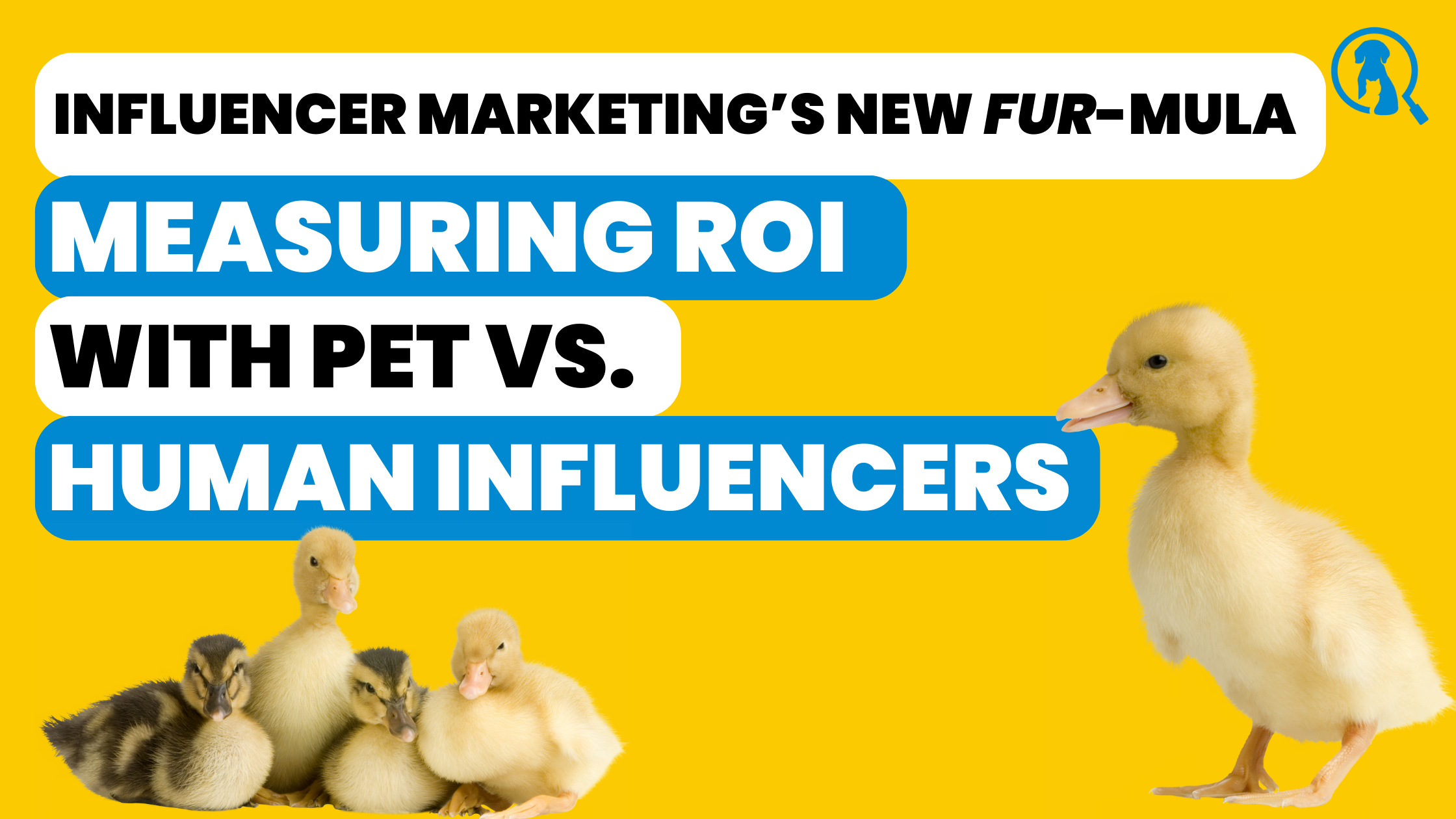Tag Post : Brands & Agencies
Share This :

In the dynamic arena of advertising, influencer marketing has emerged as a formidable force, reshaping how brands connect with their desired audience. As social media continues to flourish, it has not only given rise to human influencers but also introduced a new breed of influencers – those with paws, whiskers, and tails: pet influencers.
Intriguingly, the rise of pet influencers prompts us to explore the intricacies of return on investment (ROI) when compared to their human counterparts. Additionally, it beckons us to delve into the pricing models that govern pet influencer marketing as opposed to human influencer marketing. In this blog post, we’ll dive into these inquiries and venture into the captivating world of influencer marketing.
Influencer marketing has transformed traditional advertising by harnessing the sway and reach of individuals on social media platforms. Human influencers, with their remarkable ability to engage and resonate with their followers, have proven to be influential advocates for brands. Their content showcases products or services in an authentic and relatable manner, resulting in heightened consumer trust and increased sales for the brands they endorse.
When it comes to assessing ROI with human influencers, the process is relatively straightforward, with numerous online tools available to gauge their worth. Brands can also measure the success of influencer campaigns through various metrics, including engagement rate, click-through rates, conversion rates, and direct sales generated. These quantifiable metrics empower brands to evaluate the effectiveness of their investment and calculate the ROI of collaborating with human influencers.
Pet influencers have taken social media by storm, captivating audiences with their endearing antics and lovable personalities. From adorable cats to playful pups, these furry luminaries have amassed massive followings and devoted fan bases. What makes pet influencers so appealing is their ability to elicit positive emotions and provide a delightful respite from the rigors of everyday life. Unlike some human influencers, pets tend not to stir controversy – they’re a universally beloved presence.
Measuring the ROI of pet influencers can be more complex compared to their human counterparts. The influence of pet influencers on consumer behavior is less straightforward and typically exhibits a lower conversion rate than their human counterparts, despite having a smaller audience reach. Consequently, their fees are often more budget-friendly with on average higher engagement rates than their human counterparts. Brands can evaluate the success of pet influencer marketing campaigns by assessing metrics like follower growth, engagement rates, and increases in brand awareness. Here at Pets on Q, we employ a technology-based platform to analyze these metrics and determine suggested rates before collaborating with pet influencers. To summarize, Pets have a larger reach in general per follower count and a higher engagement rate but a overall lower conversion rate so they are calculated on a different and lower scale than an influencer that is pet based. Make sure to use our calculation tool ( we call it P.E.T – Pricing Engagement Tool) that is specific to those in the pet industry.
Pricing for influencer marketing is influenced by several factors, including follower count, engagement rates, industry niche, and content quality. Human influencers typically command higher rates due to their capacity to deliver more nuanced content and produce a measurable impact on consumer behavior. Additional factors, such as an influencer’s expertise, reputation, and audience demographics, also play a role in determining pricing.
In the realm of pet influencers, pricing standards are typically lower compared to their human counterparts. This disparity arises from the challenges in measuring direct ROI and the perception that pet influencer content may not possess the same persuasive power as that of human influencers. However, as the popularity of pet influencers continues to surge, pricing models within this niche are evolving, with some highly successful pet influencers boasting substantial and engaged audiences commanding higher rates.
Selecting the right influencer for a brand’s marketing campaign requires careful consideration. Both human and pet influencers offer unique advantages and considerations. Human influencers provide relatability and the ability to drive direct action, while pet influencers infuse joy, humor, and emotional connection into campaigns. Ultimately, the choice between human and pet influencers should align with the brand’s target audience, campaign objectives, and brand identity.
In conclusion, influencer marketing remains a potent tool for brands seeking to forge authentic and engaging connections with consumers. While human influencers continue to dominate the industry due to their measurable ROI and persuasive content, pet influencers have emerged as a formidable force, captivating hearts and commanding attention on social media platforms.
If you’re ready to harness the captivating influence of pet influencers for your brand, look no further than Pets on Q. Our technology-driven platform and expert team are here to guide you on this exciting journey. Let’s work together to create impactful pet influencer marketing campaigns that resonate with your audience and drive real results. Contact Pets on Q today and unleash the power of pet influencers to elevate your brand’s presence and reach. Your success is just a click away!
Tag Post : Brands & Agencies
Schedule a FREE discovery call where we go over your brand or production companies wants and needs for any upcoming campaign or production job.